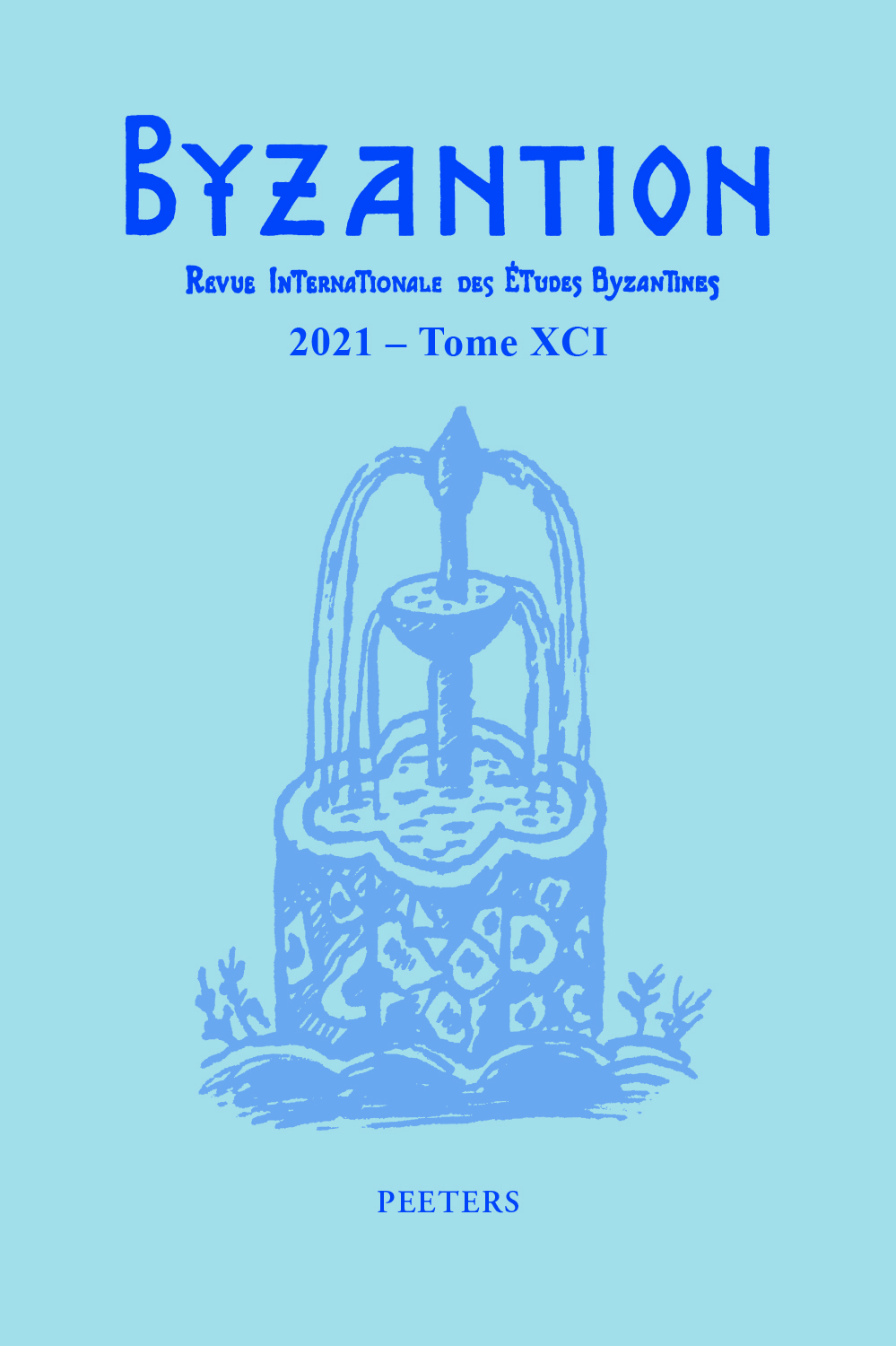 previous article in this issue previous article in this issue | next article in this issue  |

Preview first page |
Document Details : Title: The Foreign Policy of Phocas (602-610) Subtitle: A Neorealist Reassessment Author(s): DE VLEESCHOUWER, Arnout Journal: Byzantion Volume: 89 Date: 2019 Pages: 153-200 DOI: 10.2143/BYZ.89.0.3287070 Abstract : In 602 internal strife in the Byzantine army campaigning in the Balkans would lead to the deposition of the legitimate emperor in Constantinople. His throne was usurped by the leader of the insurgency, Phocas. Not long after his accession as emperor of the Byzantine Empire, the Sassanid shahanshah, Khosrow II, declared war. The so-called 'last great war of Antiquity' would tear the Middle East apart for nearly two decades, bring both empires to the brink of collapse and pave the way for the Rashidun armies emerging from the Arabic desert. Due to these developments and a bias inherent to the Greek sources documenting his reign, Phocas has often been regarded in modern scholarship as one of the worst Byzantine emperors. This article follows an emerging academic tendency to challenge such a traditional perception through the analysis of Phocas’ foreign policy based on not only Greek, but also Armenian, Syriac and Latin sources, as well as the results of archaeological excavations and numismatic findings. Additionally the theoretical framework provided by neorealism, a structural theory borrowed from the discipline of international relations, emphasises the importance of external factors when discussing how states, in this case the Byzantine Empire, behave in an international system. This will demonstrate that the way in which Phocas ruled the Byzantine Empire does not correspond with how his reign has been portrayed in both Greek sources and traditional scholarship alike. Rather, his decisions and the subsequent outcomes were shaped by external factors beyond his control, such as the regional balance of power and the legacy left by his predecessors. Ultimately, the current article sets out to encourage future research that combines elements from the academic disciplines of history and international relations, and to offer an alternative framework to overcome the challenges presented by literary sources. |
|


